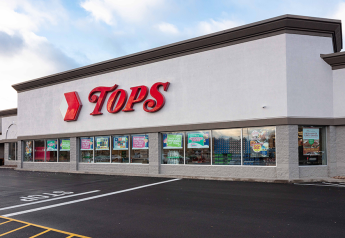Recession would cause consumers to cut back on meat most, survey says

In the event of a recession, consumers say they would cut back most on steak, pork and dining out, a survey reports.
The June Consumer Food Insights Report from Purdue University included a survey with responses from 1,200 consumers from across the U.S.
The survey also revealed:
- Food spending has risen by 2.1% from last June, much less than the 6.7% government estimate of food inflation;
- The national food insecurity rate increased to 17%, which matches the survey’s highest recorded rate from March 2022;
- Households making less than $50,000 annually are buying groceries online at a higher rate than other households;
- On average, consumers are spending about $120/week on groceries and $70/ week on restaurants and other carryout; and
- Compared to last May, grocery spending is up only 1% and restaurant and takeout spending is up 4%.
The survey’s estimate of annual food inflation has fallen to 6.4%, which is the lowest consumer estimate since April 2022.
That survey estimate is also just below the 6.7% government estimate for annual food inflation released in May.
“Consumers continue to predict that annual inflation over the next year will be about 4%, which does not seem to be a bad guess given the consistent decline in food inflation since last summer,” he said.
The survey said households who make more than $100,000 annually are now spending nearly $40 more per week on groceries than those who make less than $50,000 annually.
However, the report said the rate of increase in grocery spending since the start of 2022 is similar in both higher-income and lower-income households.
“The highest earners do not appear to be dramatically outpacing the lowest earners in their spending,” the report said.
However, the survey found those making more than $100,000 annually have been spending dramatically more on restaurant food compared to the start of 2022.
“While others have also increased their spending, it appears that restaurant spending could have peaked for lower-income households while it continues to rise for the highest earners,” the report said.
Surprisingly, the survey found households making less than $50,000 annually appear to be now buying groceries online at a higher rate than households making more than $100,000 annually.
“As the pandemic opened online grocery to SNAP recipients and as these options have expanded, online grocery options evidently remain a key tool for a range of shoppers,” the report said.
Purdue University’s researchers estimated that national food insecurity in the June survey was 17.1%, the highest since March 2022.
Most food-insecure households are making under $50,000, the report said.
More than 40% of households making less than $50,000 annually are food insecure, the report said.
About 25% of these households have received free food or SNAP benefits, indicating that there are likely many households eligible for assistance who are not receiving it, according to the report.
The survey found that the highest-income consumers are generally more willing to agree that there is a connection between food and the climate.
“However, the largest gap between high- and low-income consumers concerns the belief that GMO food is safe to eat,” the report said. Nearly 50% of higher-income consumers said they believe GMO food is safe to eat. That compares with less than 25% of consumers making less than $50,000 per year who believe that GMO foods are safe to eat.
“These groups are much more aligned in their beliefs when it comes to the healthfulness of plant-based milks and gluten-free food,” the report said. “On average, each income has been no change in these beliefs over the last 19 months.”
Most consumers surveyed said they were supportive of employing AI to improve areas like food waste, pesticide application, and even food choice.
“People are less sure about introducing AI to explicitly reduce reliance on immigrant labor or improve plant breeding,” the report said. “Immigration and breeding technologies like genetic modification are also two generally contentious issues, as well as the use of AI to eliminate jobs, so it is less surprising that these areas might receive greater skepticism from consumers without more information,” the report said.







